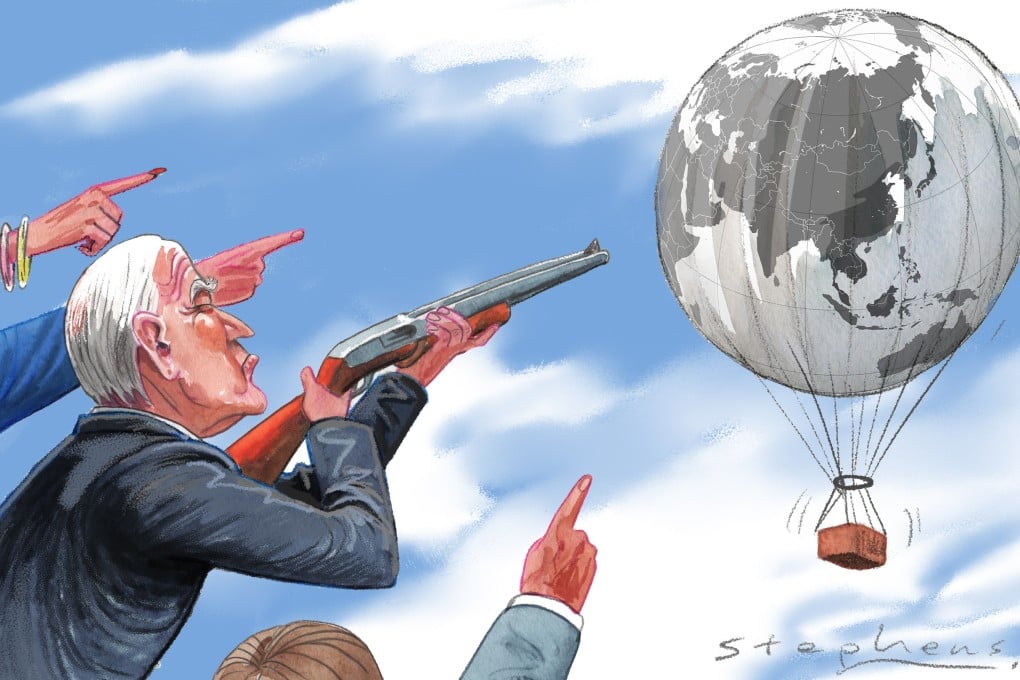Advertisement
Opinion | US handling of Chinese balloon row deflates Asian allies’ confidence
- The frenzy and panic over such a minor threat leave question marks over how the US will respond to a more serious military crisis in Asia
- The rapid breakdown in US-China dialogue also suggests allies such as Japan and South Korea would be left more vulnerable in case of conflict
Reading Time:3 minutes
Why you can trust SCMP
11

The dispute over an alleged spy balloon that flew over the United States early this month has dominated world politics and brought several countries to the edge. Washington and its allies are on high alert over suspicions of Chinese surveillance. Meanwhile, Beijing has hit back with its own allegations.
Yet, arguably bigger than the dispute itself is that it went public at all. For months, China and the US had been trying to ratchet down tensions. Late last year, the two countries’ leaders met on the sidelines of the G20 Summit in Bali and prioritised dialogue. That cleared the way for a visit to China by US Secretary of State Antony Blinken.
The slow but cautious rapprochement had purpose. Chinese President Xi Jinping was preparing to move past zero-Covid restrictions and bring the Chinese economy back to normalcy. US President Joe Biden had domestic economic concerns to deal with. Issues such as climate change and post-pandemic recovery were begging for cooperation between the world’s two largest economies.
Advertisement
Then, the balloon appeared.
At first, the US was wary about overreacting. Washington did not immediately announce or protest against the intrusion of the balloon into US airspace. In a February 2 press briefing, the Pentagon did not mention China and said the balloon “does not present a military or physical threat to people on the ground.”
Advertisement
Then, politics took over and Republican politicians began to stoke outrage in Washington. North Dakota senator Kevin Cramer called it an “invasion”. South Carolina senator Tim Scott asked supporters if Biden had put Americans in danger by not shooting down the balloon immediately.
Advertisement
Select Voice
Choose your listening speed
Get through articles 2x faster
1.25x
250 WPM
Slow
Average
Fast
1.25x
